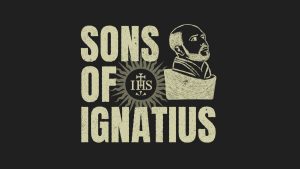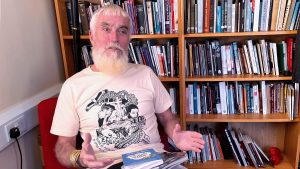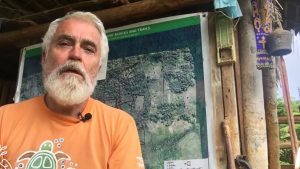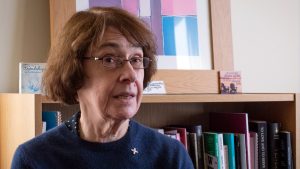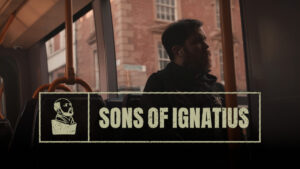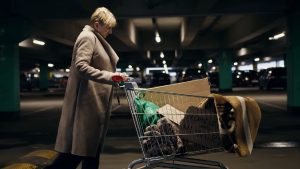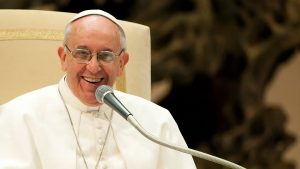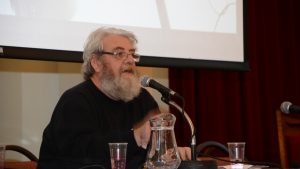Bethlehem calling
 Charlotte Carson, UK coordinator of Open Bethlehem, explains the difficulties Bethlehem faces this Easter – both the physical obstacles which cut it off from Jerusalem and the lack of the tourist traffic on which it depends.
Charlotte Carson, UK coordinator of Open Bethlehem, explains the difficulties Bethlehem faces this Easter – both the physical obstacles which cut it off from Jerusalem and the lack of the tourist traffic on which it depends.
Soon it will be springtime in Bethlehem. The Christian heart of the Middle East will be bathed in warm sunlight, wild flowers blooming in its fertile valleys and birds singing in the Shepherds’ Field. It is a glorious time of year. But the sun shines down on a town struggling to breathe.
The markets should be bustling with international tourists, Christian pilgrims, and day-trippers from Hebron and Ramallah. Shoppers and traders should be haggling over the price of apricots, fig jam, toasted almonds and bright green olive oil. But Manger Square is quiet these days. The few tourists that do visit Bethlehem this Easter will find a town battered and bruised by the occupation, but refusing to lose hope.
According to a report by the UN Office for the Coordination of Humanitarian affairs (OCHA) of December 2004, Bethlehem is surrounded by 78 physical obstacles, including illegal Israeli settlements, settler-only roads, checkpoints and military roadblocks, and of course the Wall.
The Wall, which snakes its way throughout the West Bank, takes the form of a nine-metre high concrete wall through Bethlehem’s northern and western sides, effectively annexing 13 per cent of the town’s fertile lands and separating Bethlehem from her sister city, Jerusalem.
Although just six miles apart and part of the same diocese, there is a whole generation of Christians in Bethlehem who have never been to the Church of the Holy Sepulchre in Jerusalem. The system of permits and ID cards, reminiscent of South Africa’s Pass Laws, dictate where Palestinians can and can’t travel, whether or not they can visit relatives, attend hospital, university, and sever any possibility of trade between city and town.
The rule is quite simple: Palestinians born outside Jerusalem cannot set foot within the ‘city limits’ of Jerusalem without a permit. Permits are granted to only a fraction of the people who apply for them and the ‘city limits’ are redefined by Israel every time it expands a settlement or builds a new road. Entering Jerusalem without a permit carries the penalty of imprisonment – a high price to pay for a prayer at Golgotha.
In a statement made in November 2005, Churches Together in Britain and Ireland (CTBI) said: “The short road between Bethlehem and Jerusalem has always been the great high road of the Christian faith linking as it does the cities of Our Lord’s birth and resurrection… We view this closure and the barrier being built around Bethlehem as a grave injustice to its people, a serious threat to its economic life and social fabric, and an affront to all Christians.”
Catholic Patriarch of Jerusalem, Michael Sabbah, said during Christmas mass that Israel’s wall was transforming Bethlehem into ‘a big prison’. By the time Easter arrives, the final section of the wall through the northern part of Bethlehem will be complete. Rachel’s Tomb, a shrine holy to the three religions of the region will be officially annexed by Israel.
The Christians of Bethlehem are the oldest Christian community in the world. They have maintained an uninterrupted presence for 2000 years. But in the last five years, the controlling web of checkpoints, closures, permits and the wall has led one tenth of Bethlehem’s Christian population to pack up and leave their town of birth, heading to Europe or America, in search of a life without walls.
Traditionally, the Christian population of Bethlehem has relied heavily on the town’s tourism industry. Broadly speaking, this has led to a higher standard of living for local Christians compared to their Muslim neighbours. As more Christian families leave, the town’s diverse character is weakened, presenting a threat to its historically multi-faith society.
“Bethlehem is much more than a precious World Heritage Site; it is a bastion of diversity in the Middle East,” says Leila Sansour, director of Open Bethlehem, an initiative launched in London and Washington in November 2005, calling for international action to save the town. “The city is placed at the point where East and West, Christianity and Islam have co-existed in harmony for generations.”
The symbol of St George, a holy figure for both the Christians and Muslims of Bethlehem is etched on the front of the Bethlehem Passport, which the local authorities are issuing to internationals who make a significant contribution to the survival of the town.
The commitment and energy of local people and organisations to keep the town open requires support and assistance. Ms Sansour, who belongs to one of the oldest Christian families in Palestine, says: “If Bethlehem is to have a future, it is up to the people of the town to struggle to keep it open and up to citizens of the world to visit us, support us, and bring projects to our town. Our city has hosted travellers and pilgrims for thousands of years. It is a special town that belongs to the world. It should not be left to die.”
There has been a lot of speculation about the recent victory of Hamas in the parliamentary elections and the effect this will have on the Christian populations of Palestine. Ms Sansour says: “The high level of participation in the elections demonstrates that democratic ideals run deep through Palestinian society. It is the true test of democracy for such a transformation of power to take place without violence.” She believes that Bethlehem’s multi-faith community can set an example of positive co-existence between different religious groups in the Middle East, and that the emphasis should be on cultivating relations across the political scene, promoting dialogue and ensuring that all voices are heard.
Key figures in the Christian community such as Cardinal Cormac Murphy-O’Connor, Archbishop Rowan Williams and Archbishop Desmond Tutu have supported Open Bethlehem’s call and urged Christians to visit the town. The recent discussion in the Anglican Church about divestment from companies profiting from the occupation has raised hopes that British people and institutions can help to pressure Israel to end its military occupation. In the meantime, though, Bethlehem needs a life-ring, if it is to keep afloat until the wall comes down.
Contrary to the media image of the region, Bethlehem is in fact a safe place for tourists to visit. Restriction on movement applies only to local people, so getting around as an international is actually quite easy. For tourists who visit during this quiet time, there are no queues at the Church of the Nativity, and it is easy to get a table at a local restaurant for delicious falafel and a glass of Bethlehem wine.
Open Bethlehem promotes a variety of tours operated entirely by local people. In spite of today’s cruel circumstances, Bethlehemites continue to embrace visitors with the warmth of their legendary hospitality. For those wishing to take part in the ancient ritual of the olive harvest, arrangements can be made to stay with local families and enjoy this beautiful cultural experience.
The message from Bethlehem is loud and clear: “Ahlan wa sahlan – Welcome!”
Charlotte Carson is UK coordinator of Open Bethlehem



